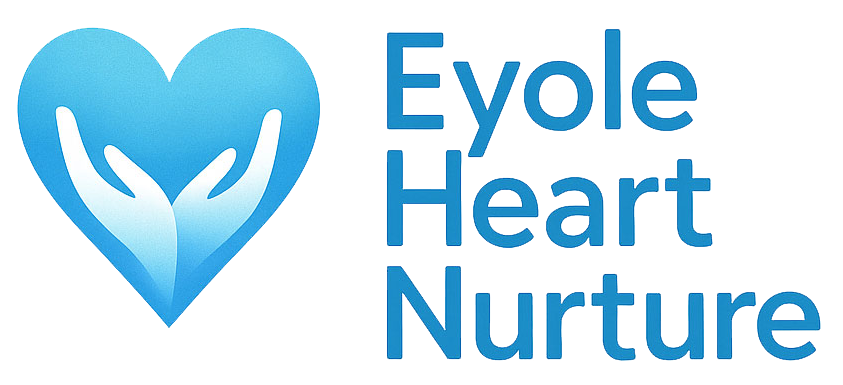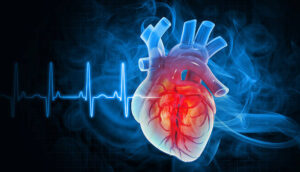It was a humid morning in Ebolowa when Sophie, a 60-year-old farmer, felt a troubling shortness of breath after climbing to her lamba farm. Her legs swelled, and she dismissed it as old age creeping in. “I thought it was just tiredness,” Sophie says, her voice calm yet reflective. One evening, the struggle to breathe became overwhelming, and her daughter rushed her to a rural clinic. The diagnosis? Heart failure, where her heart couldn’t pump blood effectively, caused fluid buildup. At EyoleHeartNurture.com, we believe embracing care can mend a weary heart, echoing the promise that “He heals the brokenhearted and binds up their wounds” (Psalm 147:3).
A Fight for Every Breath
Sophie’s days grew heavy with fatigue. The swelling and breathlessness shadowed her life, a silent struggle in Cameroon where heart failure often goes unnoticed until severe. The Mayo Clinic defines it as “a chronic condition where the heart can’t meet the body’s demands, leading to symptoms like fatigue and swelling” With 17.9 million cardiovascular deaths globally each year, including in sub-Saharan Africa per the WHO imited healthcare access and high blood pressure worsen this reality for many like Sophie.
The Silent Struggle: Recognizing Heart Failure
Dr. Paul Mbu, a cardiologist at Yaoundé General Hospital, warns, “Many in Cameroon overlook early signs like swelling or fatigue, mistaking them for aging. Early detection saves lives.” This echoes the Mayo Clinic’s caution that “untreated heart failure can lead to severe complications like kidney damage” . For Sophie, cultural norms delayed her seeking help, but the swelling was a critical sign. Her turning point came with a community health visit, where medication and salt reduction advice brought relief. Yet, only 20% of rural Cameroonians get regular cardiac screenings, per the Ministry of Public Health, leaving many vulnerable.
Rising Above: A Roadmap to Recovery
Imagine a Cameroon where every farmer and villager recognizes heart failure’s signs—where Sophie’s story inspires action. The Mayo Clinic suggests, “Lifestyle changes and medication can improve quality of life and slow heart failure progression” . For Sophie, this meant a diet of boiled plantains and fish, plus daily walks with local health workers’ guidance. Dr. Mbu advocates, “Mobile clinics and education in rural areas are essential to catch it early.” The WHO supports this, pushing for accessible healthcare to lower CVD deaths . Sophie now shares her journey at village gatherings, turning her challenge into hope for others.
Practical Steps to a Healthier Heart
- Diet: Eat low-salt foods like boiled yams and avoid fried snacks, as Sophie learned.
- Exercise: Walk 20-30 minutes daily to strengthen the heart.
- Medication: Take prescribed drugs like diuretics to reduce fluid, under supervision.
- Monitoring: Check for swelling or breathlessness and seek help early. These steps, grounded in Sophie’s recovery, can transform heart failure care in Cameroon.
Start Your Journey Today
Don’t let heart failure take you by surprise. Begin your path to heart care now. Take the free heart test today.
Let’s build a future where every heart thrives.
Frequently Asked Questions
- What are the symptoms of a weak heart?
Symptoms of a weak heart include swelling, shortness of breath, and fatigue, as Sophie experienced before her diagnosis. - What foods are good for heart failure?
Good foods for heart failure are low-salt options like boiled plantains and fish, per Mayo Clinic advice . - Can a weak heart be treated?
Yes, a weak heart can be treated with medication and lifestyle changes. - Can you live a long life with heart problems?
Yes, you can live a long life with heart problems with proper management. - Can a weak heart recover?
A weak heart can improve with treatment, though full recovery varies. - How do I make my heart stronger?
Strengthen your heart with exercise, a healthy diet, and stress reduction. - Which drink is best for the heart?
Water and herbal teas are best; avoid sugary drinks. - What foods make the heart stronger?
Foods like fruits, vegetables, and lean proteins strengthen the heart. - Is ginger good for the heart?
Yes, ginger may reduce inflammation and support heart health,. - How do I know my heart has a problem?
You know my heart has a problem by symptoms like swelling or breathlessness.





